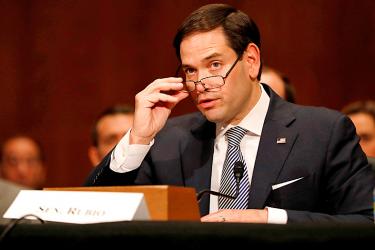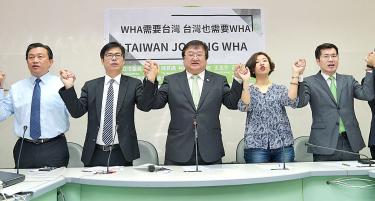The People Rule Foundation is holding a hunger strike to back its call for amendments to the Referendum Act (公民投票法). As the foundation’s name suggests, its goal in launching this action is to make ordinary Taiwanese the nation’s masters.
The fast is being held in front of Democratic Progressive Party’s (DPP) headquarters in Taipei in the hope that party, which has a legislative majority, will ensure that the legislature passes amendments to the act before the first anniversary of President Tsai Ing-wen’s (蔡英文) inauguration on May 20.













